Wagner: Transcriptions for solo piano by August Stradal, Volume Two
The Czech-born pianist and writer August Stradal (1860-1930) — a student of Bruckner and disciple of Liszt — was one of the more prolific transcribers of the nineteenth and earlier twentieth centuries, producing a vast quantity of piano music, including Liszt's orchestral works, most of the Bruckner symphonies, a good deal of the Baroque (not least a huge amount of Bach) and much more, most of it phenomenally difficult to play. This series of recordings presents his Wagner transcriptions, cast in the best barnstorming virtuoso tradition.
Juan Guillermo Vizcarra, piano
Listen To This Recording:
- Lohengrin: Freie Phantasie
- Tristan und Isolde: ‘O sink hernieder, Nacht der Liebe’ und Gesang der Brangäne: Einsam wachend in der Nacht (Love duet)
- Das Rheingold: Schluss der letzten Szene (End of the last Scene)
- Parsifal: Charfreitagzauber (Good Friday Spell)
- Siegfried: Schluss des letzten Aufzuges
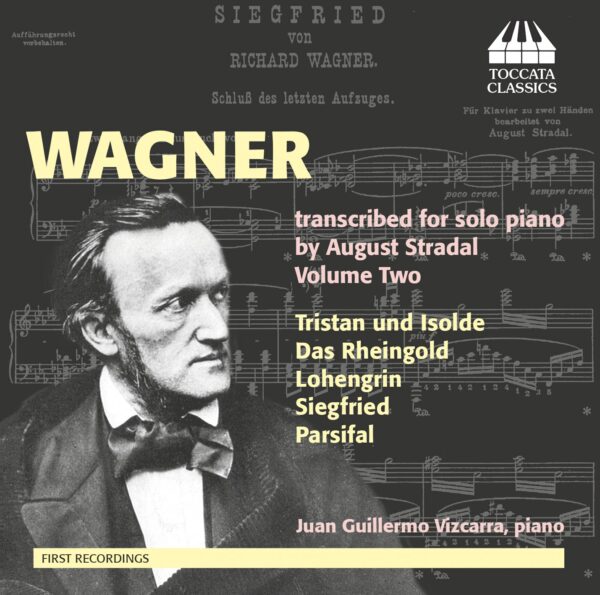
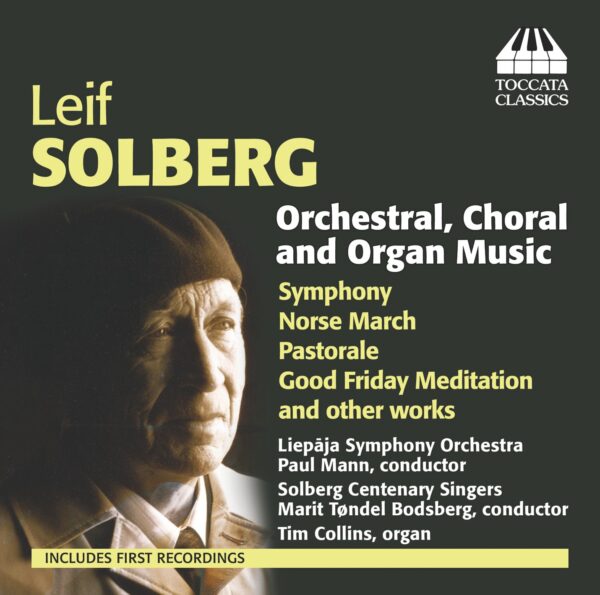
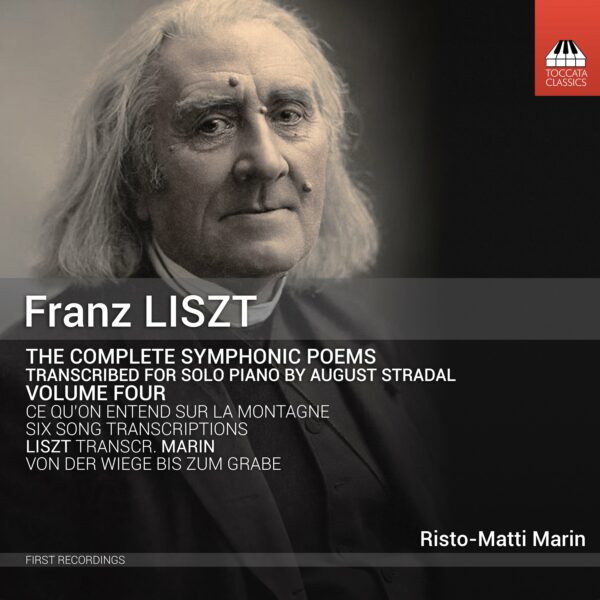
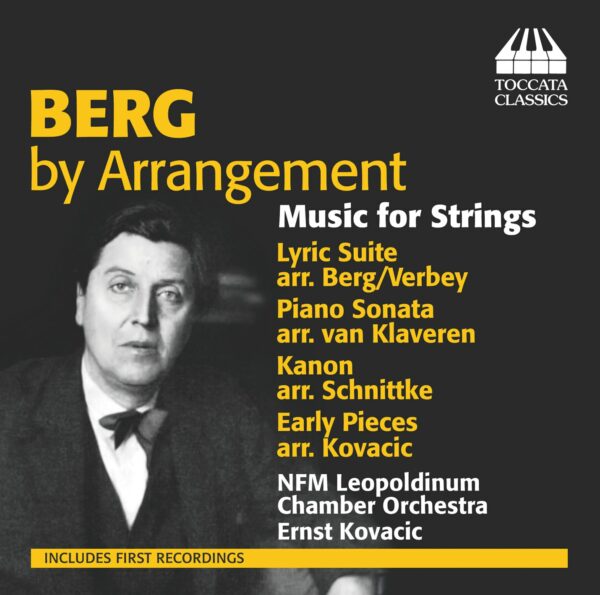
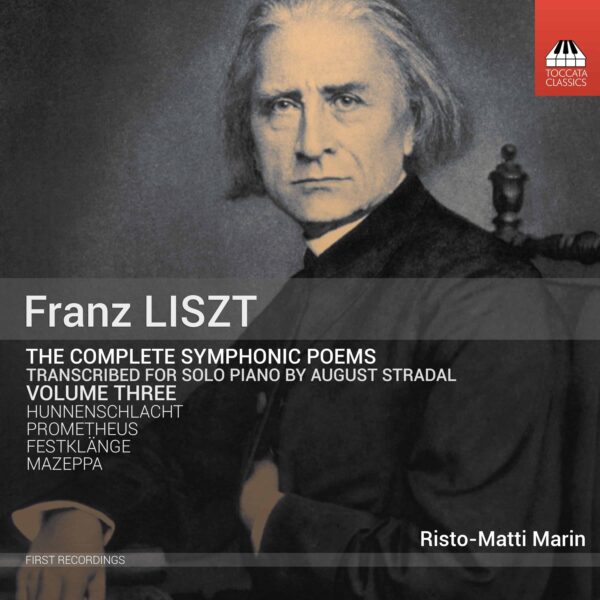
MusicWeb International :
‘…After the experience of volume 1 the sheer technical skill of pianist Juan Guillermo Vizcarra now comes as a given. What does please me even more is the reinforced sense that in purely musicianly terms he is a very impressive interpreter of Wagner. With works transcribed on such a mind-boggling scale and with such demands made on the player it would be very easy for such a recital simply to lurch from one passage of jaw-dropping technical address to the next. For sure Vizcarra is thrillingly virtuosic whenever required but it is in the reflective and lyrical passages that his interpretative skill shines through. …Occasionally in the recital this tremolando technique – ‘woggles’ in Percy Grainger’s idiosyncratic parlance – does rather outstay its welcome but I’m not sure any transcriber could achieve a better effect or have it better executed than here. Certainly in the Lohengrin Phantasy Stradal is able to minimise this simply by avoiding music that might require it or moving on before the effect palls. Vizcarra is again masterly at layering the voicings of the complex writing. He creates a brilliant aural illusion of three and sometimes more coherent musical lines playing simultaneously each with their own dynamic and tonal colour. …In the closing scene of Rheingold – from the forging of the Rainbow Bridge – in many ways Stradal has an easier task. Not in the sense of putting into just two hands a vast amount of musical information but in the way this passage is defined by big gestures and pictorial writing. If Vizcarra excelled at gentle rapture in Tristan here he displays the scale of his technical address with the most overtly virtuosic playing on the disc. …Listening to these transcriptions can be seen as a useful preparatory stage to appreciating the operas.’
—Nick Barnard, MusicWeb International
Fanfare Magazine :
‘Lohengrin: Freie Paraphrase]: The word “free” is crucial: Stradal manages to make it sound wide-ranging and, helped by Vizcarra, spontaneous; it all (just) hangs together. Vizcarra is obviously deeply enamored of the lyricism that shoots through both the paraphrase and the opera itself, and something of the special, proto-Parsifal quality of Lohengrin does indeed come through. The course to the final, ringing climax is exquisitely plotted by Vizcarra. [Tristan und Isolde: O sink hernieder und Gesang der Brangaene]: Stradal’s take is softly repeated, pulsating chords. It works beautifully. … Bizarrely given the technical difficulty of much of this music, perhaps the most impressive part of Vizcarra’s reading is the power of the single line.’
—Colin Clarke Fanfare Magazine
Theater Jones :
‘He [August Stradal] was great pianist and a great admirer of Liszt, and devoted as well to Wagner, or at least to his music. … This is an important pair of discs [Vol. 1 and Vol. 2] for several reasons: they show off Vizcarra’s talents, and all indications are that if the music required more of him, he’d be up to it; they also give us lots of angles on Stradal’s talents as an arranger/composer … and they give us new angles on Wagner’s music. … Vizcarra’s pianistic talent is the real star of these discs. Some of the transcriptions feature so many intertwining strands of music—one, sometimes two of these were originally vocal lines—that differentiating the strands would hardly seem possible for a performer. Vizcarra does better than that, however. By his own admission, he added some vocal lines to the texture that Stradal left out, an omission surely aimed at making the arrangement more accessible to the ordinary prize-winning virtuoso. … And it makes me anxious to see what else Vizcarra has up his very talented sleeve.’
—Andrew Anderson, –Theater Jones, March 2017
BBC Music Magazine :
‘Transcriptions by the Liszt disciple Stradal provide meaty fare for Vizcarra. He produces an often monumental tone and pedalling effects are impressively worked.’
—Jessica Duchen, BBC Music Magazine, February 2015